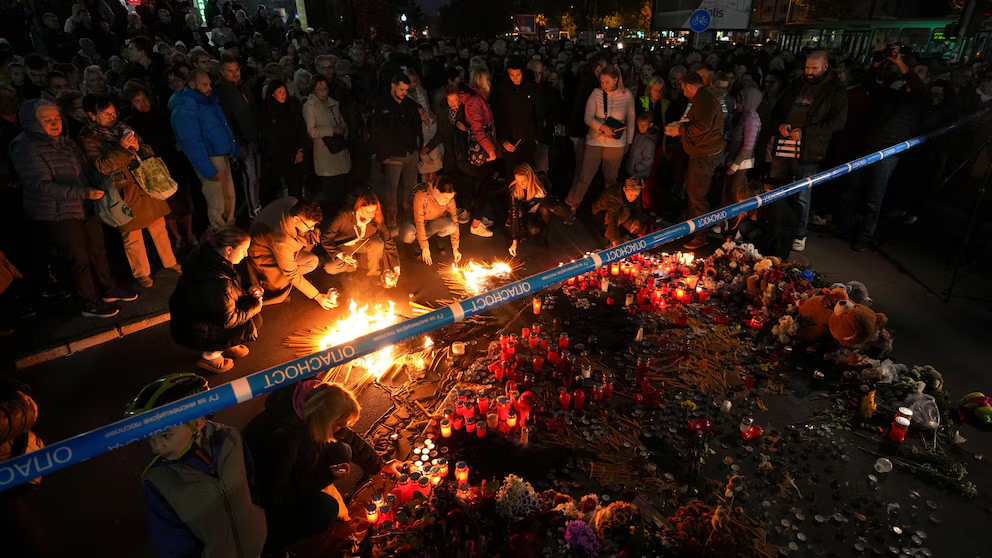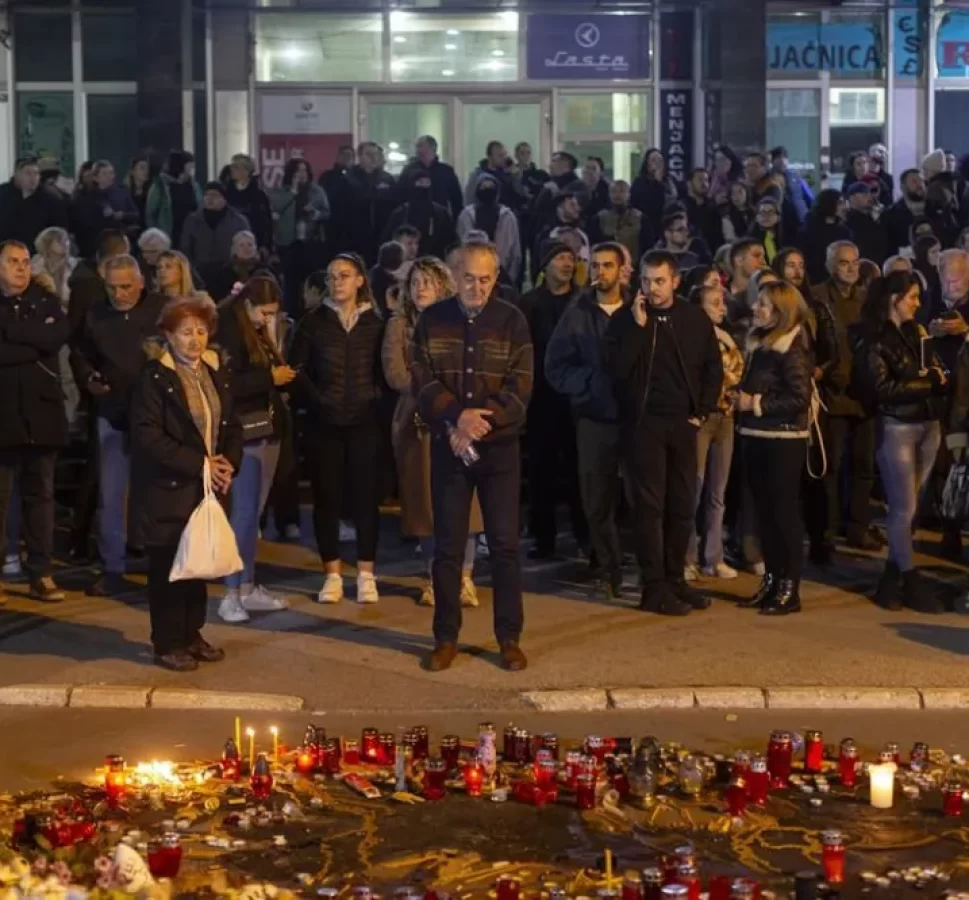
Demonstrators demand arrests and accountability after 14 people were killed and three others were critically injured.
Thousands of Serbians took to the streets in the city of Novi Sad in rage over last week’s roof collapse at a railway station that killed 14 people.
Police officers in riot gear, deployed inside the 19th-century building in the city centre, responded to the protests on Tuesday night by firing tear gas canisters and clashing with demonstrators around the city hall building. They also used pepper spray after protesters broke the windows.
Some masked protesters allegedly hurled stones and other objects at the building despite calls by organisers to remain calm. Earlier, they hurled eggs, bottles and bricks at an office of the governing Serbian Progressive Party (SNS).
Serbia’s President Aleksandar Vucic said police were “showing restraint” while warning that “horrific, violent protests are under way”.
“People of Serbia, please do not think violence is allowed,” he said in social media posts, adding that all “perpetrators of criminal acts” will be punished.
After the protests, rally organisers said rioters belonged to groups of provocateurs with possible ties to the populist government. They claimed that the tactic has been used before to thwart peaceful antigovernment protests and smear the opposition.
As the protests wound down later on Tuesday, Vucic made a surprise trip to Novi Sad, with a brief appearance before his supporters, who had gathered in hundreds outside the party headquarters.
He also released an image of himself shaking hands with police officers and expressed his backing.

Serbia’s opposition politicians, activists and rights groups accuse authorities loyal to Vucic and the SNS of rampant corruption, ties with organised crime, nepotism and excessive red tape. Vucic and his allies deny the allegations.
A six-year-old girl was among 14 killed when the massive 35-metre (115-foot) canopy on the outer wall of the railway station in Novi Sad suddenly collapsed, critically injuring three other people.
The train station had been renovated twice in recent years and had been reopened in July after the latest round. Construction work still continued in parts of the station when the roof collapsed.
But officials insisted that the canopy of the railway station originally built in 1964 had not been part of the renovation work.
On Monday, Transport Minister Goran Vesic resigned over the incident. Prosecutors said they have questioned 48 people so far, including Vesic, and have secured evidence.







